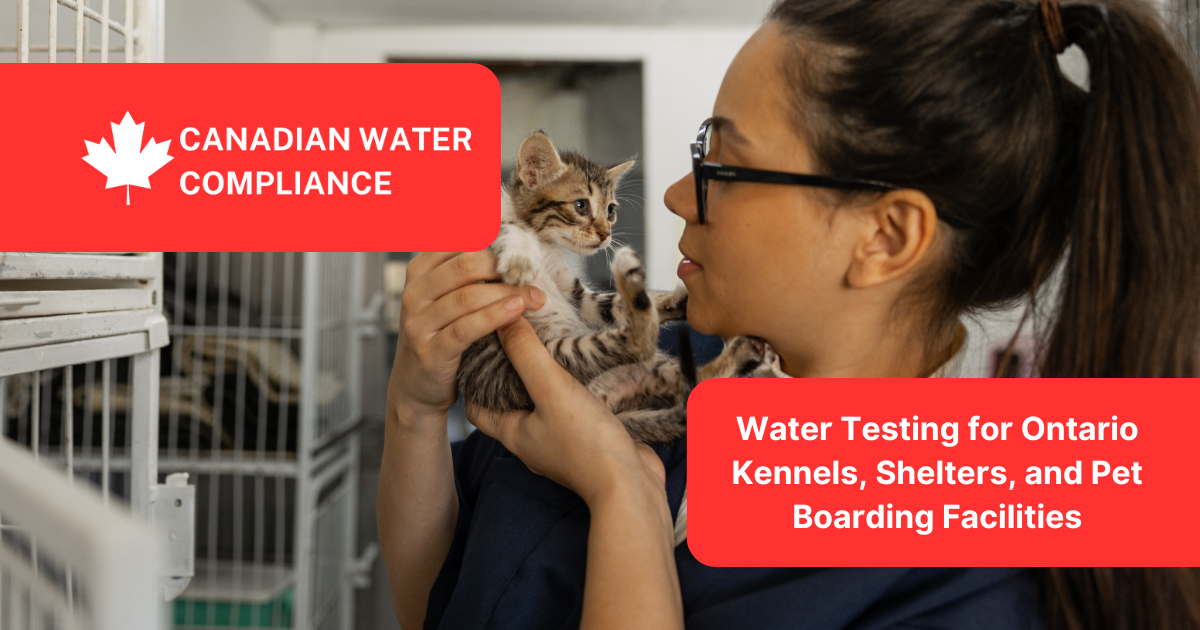
Written By: Canadian Water Compliance | On
Pet care facilities in Ontario—including boarding kennels, veterinary clinics with boarding, animal shelters, and dog daycares—are entrusted with the health and safety of animals. But when it comes to drinking water quality, few operators realize they may have legal and ethical obligations under provincial guidelines.
Whether you're running a rural shelter with a private well or a large kennel facility with multiple staff and animals, maintaining safe, contaminant-free water is critical. Poor water quality can lead to health issues in animals, trigger inspections or complaints, and potentially violate Ontario’s Health Protection and Promotion Act (HPPA) or O. Reg. 319/08.
Just like humans, animals can suffer from gastrointestinal illness, skin irritation, or chronic conditions caused by poor water quality. Common contaminants include:
E. coli and coliform bacteria from surface contamination or inadequate disinfection
Nitrates, sodium, and hardness affecting hydration and kidney function
Iron, manganese, and turbidity impacting taste, staining bowls, and altering treatment protocols
In shelters, where young, old, or immunocompromised animals are common, water safety becomes even more urgent.
If your pet boarding facility or shelter uses a private well or non-municipal water source, and provides water to staff or the public (including volunteers or adopters), you may fall under Small Drinking Water System (SDWS) regulations outlined in O. Reg. 319/08.
This would require:
A Site-Specific Risk Assessment (SSRA) conducted by your Public Health Unit
Biweekly testing for E. coli and Total Coliforms
Annual chemical testing for key parameters like nitrates, sodium, pH, and metals
Recordkeeping and public notification in case of unsafe results
Even if you're not formally classified as an SDWS, due diligence dictates regular testing—especially if you're caring for animals with special health needs.
Test at multiple locations, such as animal pens, kitchen areas, and staff washrooms
Label and rotate water bowls to monitor consumption and detect issues early
Maintain treatment systems (e.g., UV, filters, softeners) and log maintenance tasks
Communicate testing practices to staff, volunteers, and clients for transparency
Having a documented testing plan is also useful during inspections by the OSPCA, local bylaw officers, or animal welfare groups.
We work with pet care facilities across Ontario to:
Provide certified water testing and lab sampling for bacteria and chemicals
Conduct onsite assessments and explain compliance options
Assist with Public Health Unit coordination and SDWS registration if needed
Deliver emergency testing support after complaints or illnesses
Offer seasonal packages for boarding facilities operating part of the year
Protecting the animals in your care starts with protecting their water.